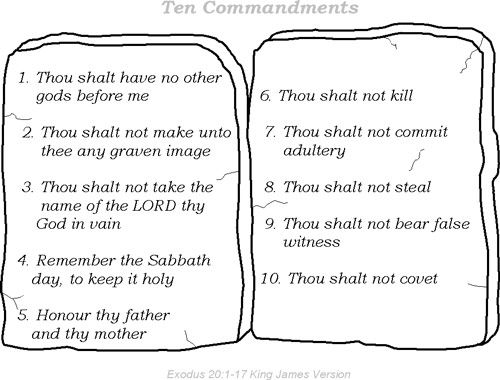Do You Feel Your Freedom is Limited by the Boundaries God Sets?
Find God’s Love in the “Thou Shalts” and “Thou Shalt Nots” Today!

I can remember the days of raising three teenagers. Each one challenged the boundaries we set in our home in different ways. One would never violate curfew but had a difficult time holding her tone at a respectful level. She knew the consequences for losing control of her tone when speaking with me. But there were times she deliberately just railed about whatever was on her mind. One time in the midst of such a railing, I asked her why she continued to do so when she knew the consequences would be sure and swift. She replied, “Because sometimes it feels so good to get it out that it’s worth the consequences.” Well, there you have it! At least she thought it out before violating the rules.
The Source of Boundaries
For those of us who grew up without a father to set boundaries or with one that failed to appropriately set and model the boundaries, we were not left to our own devices to figure it all out. God loves us even more than our own parents do. He wants us to grow into the person He has purposed us to be. He wants us safe from the physical and emotional harm caused by deceitful, greedy, promiscuous living. Therefore, He not only set forth rules to live by in the Bible, but He also modeled them in the life of Jesus Christ. We have the example we need to know how to act according to the rules.
Just as teenagers often think their parents’ rules are intended to keep them from having fun and living a full life, adults often think God’s “commands” are intended for the same purpose. But God’s intention is quite to the contrary. God wants us to have an abundant life free from guilt, shame, addictions and emotional scars that impair our efforts to attain all God has in store for us.

In the book Words of Endearment: The Ten Commandments as a Revelation of God’s Love, Dr. William Coker, Sr. explains that God’s rules as articulated in the Ten Commandments “form the basis for a society that makes it possible to live together with respect.” (William B. Coker Sr., Words of Endearment: The Ten Commandments as a Revelation of God’s Love, (sermontobook.com, 2020), 234.) Dr. Coker affectionately calls the Ten Commandments “Words of Endearment” because they are an expression of God’s love, not rules to adhere to in order to receive salvation (Ibid, 11-12, 232-233).
When people think of God’s rules, they primarily think of the Ten Commandments set forth in Exodus 20:2-17 and Deuteronomy 5:6-21. They often refer to them as the “thou shalts” and “thou shalt nots” when discussing them a bit irreverently, pointing to them as chains on their freedom to live the lives they want to live. But God’s reason for establishing them was quite to the contrary. Dr. Coker explains that God set a pattern of living to enable us to “live a full and abundant life,” and adopting this pattern helps “maintain a whole and healthy society.” (Ibid, 24-25, 186.)
Dr. Coker further explains God’s boundaries don’t affect only society as a whole but also individuals, stating “When we live within His framework, life is pleasant. When we don’t, there are consequences.” (Ibid, 170.)
Confidence in the Boundaries
Like a good father, God established healthy boundaries to protect us, His children. His love is shown in each and every one of the Ten Commandments. Yet, when asked by a lawyer which of these was the greatest commandment, Jesus boiled them down into two simple ones: 1) Love the Lord your God with all your heart, and with all your soul, and with all your mind; and 2) Love your neighbor as yourself (Matthew 22:35-40).
God established the boundaries so we might live a life full of love in all of our relationships and in society as a whole. If we live inside His boundaries, we can have confidence we will discover all the good He has created for us.
Adapted from Hey Dad, It’s Me! Discover the Father Who Loves and Protects You, to be published in October 2021.

